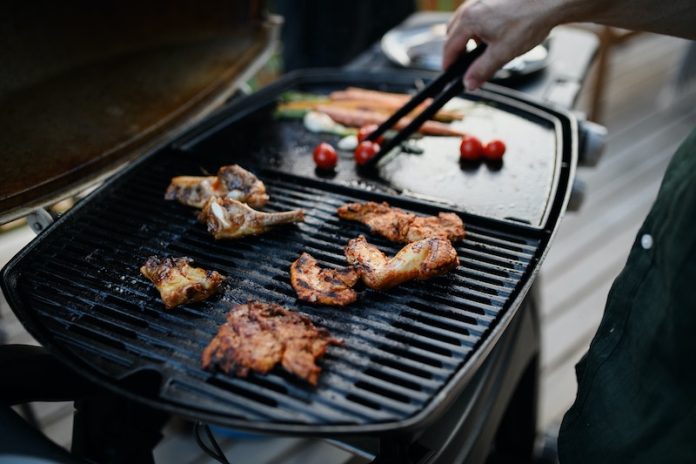
We’ve all heard that grilling or deep-frying our food, especially red meat, could make us more likely to get cancer. New research points to an unexpected reason for this.
They suggest that the heat from cooking can actually hurt the DNA in the food. And when we eat it, this damaged DNA might get added to our own, possibly leading to cancer later on.
These early findings need more research, especially in humans, but they could change how we think about cooking and what we eat.
What’s in Our Food Might Hurt Us
Studies in the past have suggested that eating grilled or fried food can damage our DNA. This was thought to be because of certain small particles that form during the cooking process.
However, these particles are thousands of times fewer than the amount of DNA naturally found in food. So, the chance of these particles causing DNA damage is pretty slim.
In contrast, certain building blocks of DNA called nucleotides are abundant in our food. They can easily be absorbed by our cells and become a part of our own DNA.
This could provide a significant way for damaged DNA from our food to hurt our own DNA. Eric Kool, the lead researcher and a professor at Stanford University, explains that their study shows a possible risk linked to the DNA in our food that has never been considered before.
DNA in Your Steak
Not many people know this, but our food is full of DNA. For instance, a 500-gram steak has over a gram of cow DNA.
While DNA doesn’t show up in nutrition labels like protein or fat, it’s a big part of our diet. And when we cook our food at high temperatures, we could be eating damaged DNA.
The team at Stanford University, where Kool works, have been studying how DNA repairs itself after being damaged.
As part of this work, they cooked ground beef, pork, and potatoes at different temperatures and sent them to a team at the National Institute of Standards and Technology (NIST).
The NIST team found that all three foods had damaged DNA after being cooked, even at low temperatures like boiling.
They also found that the most common types of DNA damage could lead to cancer. These damages included changes in the DNA building blocks that could lead to genes not working properly and cells multiplying uncontrollably.
Next, Kool’s team gave a solution containing these damaged DNA components to mice and added it to lab-grown cells.
They found that the cells showed significant DNA damage after taking up these components. In mice, the damage was seen mostly in the cells of the small intestine, where a lot of digestion happens.
What’s Next?
Now, Kool and his team are planning to test more types of food and different ways of cooking.
They’re also interested in how eating damaged DNA over a long time can affect our health, as opposed to the high doses they gave the mice in their study.
They’re not sure where these findings will lead, but Kool believes they might reveal a health risk that has never been considered before. He hopes that other scientists will start studying this too.
The research was funded by the US National Cancer Institute and the American Cancer Society, among others.
It involved researchers from the National Institute of Standards and Technology, the University of Maryland, Colorado State University, and the Korea Advanced Institute of Science and Technology.
If you care about cancer, please read studies about how to reduce pancreatic cancer spread by nearly 90%, and green tea could help reduce death risk in type 2 diabetes
For more information about health, please see recent studies about new way to increase the longevity of cancer survivors, and results showing vitamin D supplements strongly reduces cancer death.
The study was published in ACS Central Science.
Follow us on Twitter for more articles about this topic.
Copyright © 2023 Knowridge Science Report. All rights reserved.



